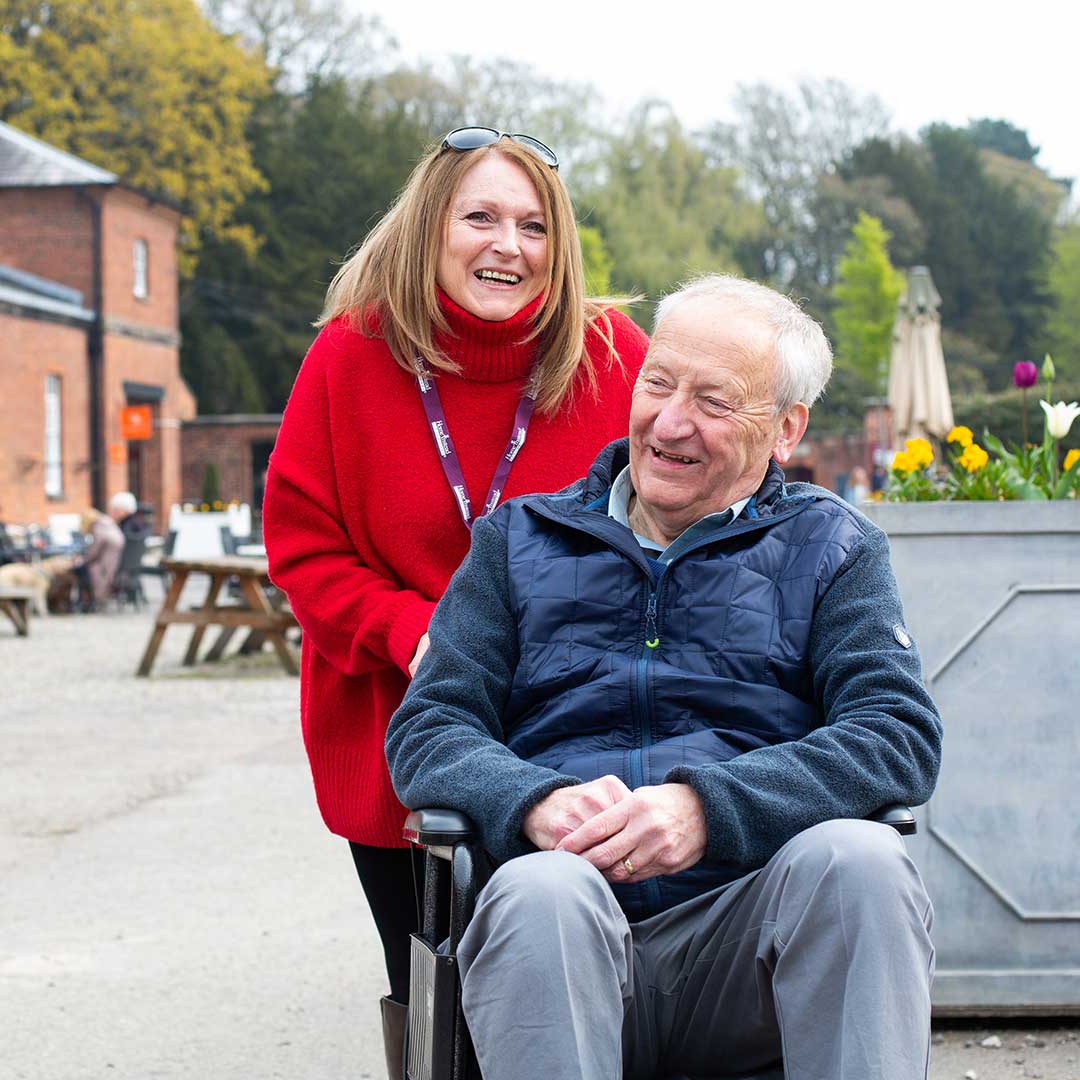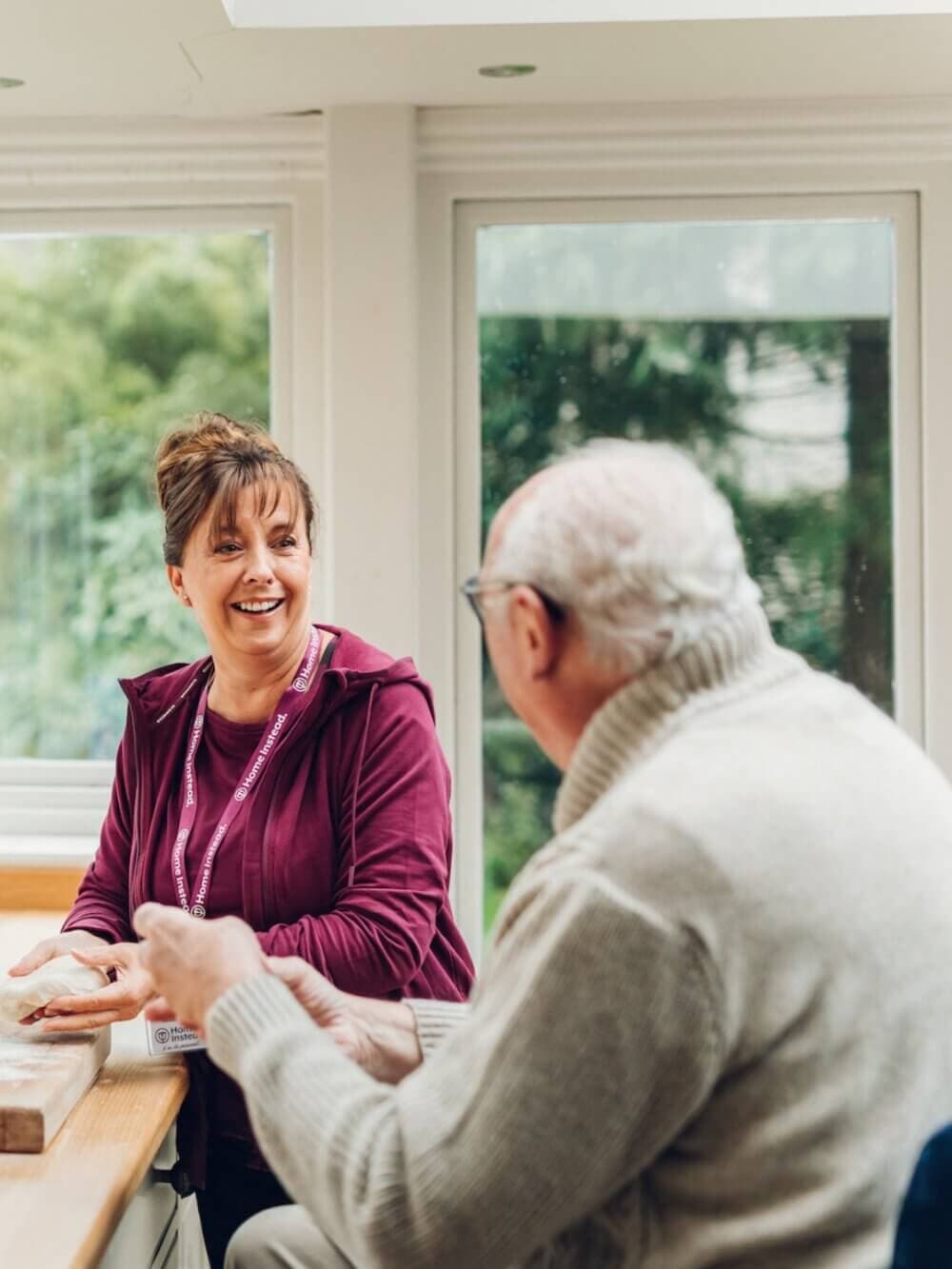Dementia: Spotting Early Signs & Getting a Diagnosis — A Guide for Wandsworth, Lambeth

As a home care provider in Wandsworth, we know how difficult it can be to navigate the subtle and often confusing early signs of dementia. It’s a question we’re frequently asked: “How do I know if this is just normal ageing or something more?”
It’s true that the early stages of dementia can be easily mistaken for simple forgetfulness. Unlike typical ageing, however, the symptoms of dementia are persistent and become severe enough to interfere with daily life. A person experiencing this decline may not even be aware of the change themselve,s which is why family members are often the first to notice.
Spotting these subtle changes in a loved one’s memory, behaviour, or personality is the first crucial step. An early formal diagnosis is vital, as it opens the door to timely treatments, essential support groups, and necessary financial benefits.
In this guide, we’ll outline the actual signs that may signal dementia and walk you through the practical next steps for getting a formal diagnosis for your loved one.
Common early signs to watch for
Decline in memory: Early memory changes often involve difficulty recalling recent events or newly acquired information. Individuals may forget recent conversations, misplace everyday items, or struggle to remember the names of people they have just met. This type of forgetfulness is distinct from normal ageing and tends to interfere with daily routines and responsibilities. Gradually, a person may lose track of important dates or appointments and increasingly rely on notes or reminders to manage everyday tasks.
Communication problems: People may begin to have trouble following or participating in conversations. They might suddenly stop mid-sentence, unable to think of the right word, or substitute vague terms like “thing” or “you know,” making their speech less precise. Processing information can become slower, causing delays in responses during conversations.
Confusion and disorientation: Early dementia can cause difficulty navigating familiar places. A person may get lost walking to a local store, forget how they arrived somewhere, or be unsure of the current time or date. This disorientation reflects deeper changes in memory and spatial awareness, not just occasional forgetfulness.
Changes in mood and personality: Those experiencing early dementia may have sudden and unpredictable mood swings, feeling anxious, fearful, suspicious, or depressed without obvious cause. These emotional shifts can lead them to withdraw from social activities, work, or hobbies as they may feel overwhelmed or unable to cope with their rapidly changing experiences.
Poor judgment: Dementia can impair decision-making skills, leading to poor judgment in everyday situations. For example, someone might attempt to cross a busy road unsafely, give away money inappropriately, or neglect personal care such as dressing in unsuitable clothes for the weather. This decline reflects challenges in problem-solving and assessing risks caused by cognitive deterioration.
How to Talk to Your Loved One and Prepare for the GP Appointment
Bringing up concerns about a loved one’s memory can be sensitive, so it’s important to approach the conversation gently and thoughtfully. Choose a quiet, familiar setting where you both feel comfortable. Speak in a calm and caring tone, and you might start by asking if they’ve noticed any changes themselves or whether certain tasks have become more difficult lately.
When expressing your concerns, mention specific examples such as misplaced keys or missed appointments to help explain what has made you worry. Be patient and allow them time to respond. Your loved one may be confused or unaware of these changes. Reassure them that you’re there to help and suggest arranging a GP visit together to better understand what’s happening.
When it’s time to see the GP, try to book a longer appointment if possible. Bring a family member or trusted friend along for emotional support. Choose a quieter time of day or request a GP who knows the patient well, as this can make communication easier. Before the appointment, prepare a short list of symptoms or examples of memory changes you’ve noticed. This helps ensure the GP has enough time to listen, assess the situation thoroughly, and arrange any necessary tests or referrals.
What Happens During a Diagnosis
When memory or cognitive concerns arise, firstly, the GP will take a detailed history, often involving input from family members or close friends, to understand changes in memory, thinking, mood, and daily functioning. The GP will then carry out a physical and neurological examination, perform brief cognitive screening tests, and run basic investigations to rule out other possible causes of the symptoms. Based on this initial assessment, the GP may either offer advice, monitoring, and support or refer the person to a specialist memory clinic for further, more comprehensive evaluation.
At the memory clinic, a more comprehensive evaluation is carried out by a multidisciplinary team, which may include psychiatrists, neurologists, psychologists, and nurses. They take a thorough medical and cognitive history and assess how the symptoms affect daily life. Cognitive testing is more detailed, and additional investigations such as brain imaging (CT or MRI) and blood tests are conducted to identify brain structure changes typical of dementia. After the assessment, the team discusses the findings and, if dementia is diagnosed, works collaboratively to develop a personalised care plan that includes treatments and support services.
How Home Instead Supports Families from Diagnosis Onwards
From the moment of diagnosis and beyond, Home Instead Wandsworth, Lambeth & Dulwich provides home support that blends clinical understanding with compassionate, person-centred care. Each client is matched with a small, consistent team of dementia-trained Care Professionals who follow the doctor’s care plan and adapt it as needs change. Our carers assist with personal care, medication management, everyday tasks and meaningful companionship, supporting both physical health and emotional wellbeing. By working closely with health professionals, we strive to deliver seamless care that helps people remain safe, comfortable and as independent as possible at home.
To find out how we can support your family, please contact the Home Instead Wandsworth, Lambeth & Dulwich office for a personalised care review.
